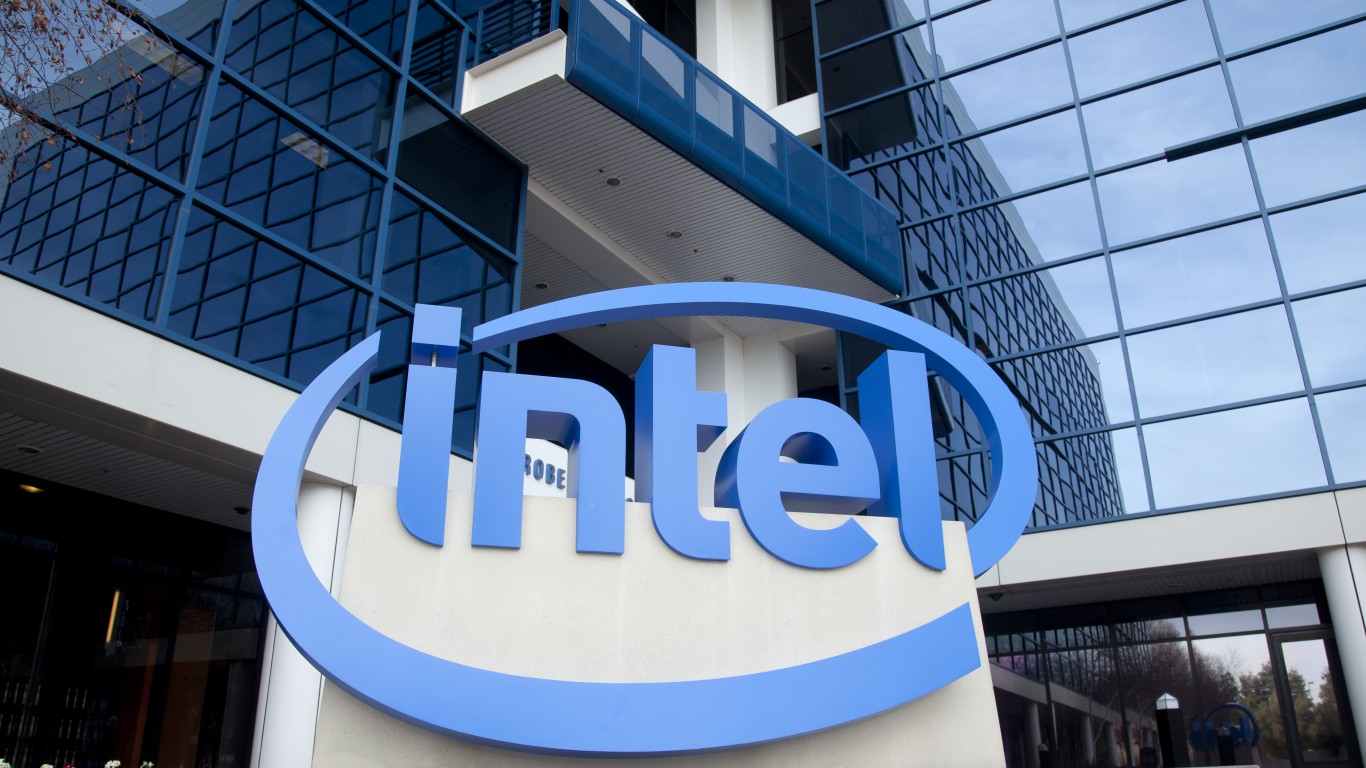
Intel shares have gained 42% year-to-date (YTD) as investors remain confident in the company’s foundry strategy. The semiconductor manufacturer also benefits from rising geopolitical tensions between the US and China, as it is considered a hedge in case the chip war intensifies.
Intel Lags Behind Samsung and TSMC Now
Once a dominant player in the semiconductor industry, Intel now faces significant challenges after falling behind major competitors, including Samsung and TSMC (Taiwan Semiconductor Manufacturing Company). The gap between these major players has become increasingly evident, with Intel’s process tech lagging behind TSMC and Samsung.
Over the past decade, Intel has encountered several issues that have hindered its progress in the semiconductor market. One of the critical issues has been the company’s inability to transition to advanced chip manufacturing processes. While Samsung and TSMC have successfully embraced the more efficient 7nm and 5nm technology nodes, Intel has faced numerous setbacks in developing 10nm chips.
The company’s repeated delays in achieving mass production of 10nm chips have given its rivals a significant advantage. Both Samsung and TSMC have capitalized on this situation by meeting the demand for advanced chips and forging ahead with the development of even smaller and more power-efficient nodes.
Intel’s delayed rollout of new chips has resulted in a loss of market share in favor of Samsung and TSMC. However, in a bid to regain its position as a leader in the semiconductor industry, Intel has made concerted efforts to address its manufacturing challenges.
Intel Aims to Overtake Samsung and TSMC by 2025
Intel aims to improve its manufacturing processes to overtake Samsung and TSMC. Last week, CEO Pat Gelsinger reiterated that the company plans to start fabricating 18A chips by 2025, which could give the company an edge against competitors.
“We’re 2.5 years into the transformation. Now, it’s sort of gone the way I would have expected at the time in terms of rebuilding the company. You have to be much less skeptical about our ability to pull this off.”
Intel aims to introduce five process nodes within four years. Intel 7 is already being utilized in their existing product lineup, including Raptor Lake for client-side applications and Sapphire Rapids for data-center implementation.
Intel’s forthcoming generation of PC chips, Meteor Lake, is slated to employ the Intel 4 process node, which is scheduled for launch in the fourth quarter of this year. Intel plans to unveil Sierra Forest and Granite Rapids in the upcoming year, both data-center central processing units (CPUs) constructed using the Intel 3 process node.
Gelsinger also revealed that the company had received a large prepay from a future foundry customer for Intel 18A capacity. He said this is a massive vote of confidence in the company’s ability to launch its Intel 18A process on time.
The CEO added that one benefit of the prepayment is that it allows the company to accelerate the build-out of some of its new foundry capacity. “So now customers are getting confident enough that they’re putting dollars on our balance sheet to accelerate our 18A capacity,” Gelsinger said.
US-China Tensions Could Benefit Intel
The escalating tensions between the United States and China could positively impact Intel. That is because souring US-China ties would negatively impact Apple and its suppliers and semiconductor equipment manufacturers on both sides of the fence.
However, amid the market turbulence, Intel may be in a favorable position. Although Intel does have exposure to China through its PC and data center processors, the company is actively developing a domestically-based foundry ecosystem in the United States.
Furthermore, disruptions caused by a hypothetical invasion of Taiwan could prove disastrous for TSMC and its clients, benefiting Intel. Chip designers might be compelled to shift their focus toward Intel’s foundries under such circumstances.
For these reasons, Intel shares have recently rallied amid geopolitical concerns. The tech giant gained over 3% on Thursday, ending the day in the green even as most other semiconductor stocks were down.
This article originally appeared on The Tokenist
It’s Your Money, Your Future—Own It (sponsor)
Retirement can be daunting, but it doesn’t need to be.
Imagine having an expert in your corner to help you with your financial goals. Someone to help you determine if you’re ahead, behind, or right on track. With SmartAsset, that’s not just a dream—it’s reality. This free tool connects you with pre-screened financial advisors who work in your best interests. It’s quick, it’s easy, so take the leap today and start planning smarter!
Don’t waste another minute; get started right here and help your retirement dreams become a retirement reality.
Thank you for reading! Have some feedback for us?
Contact the 24/7 Wall St. editorial team.





